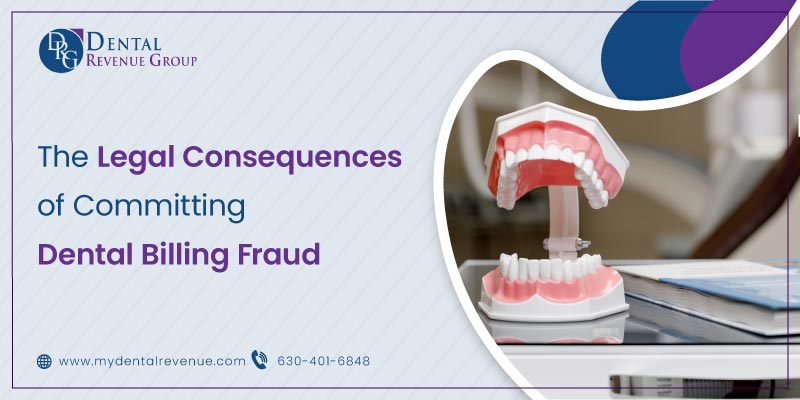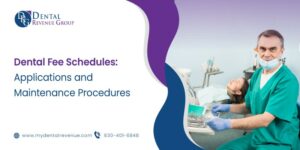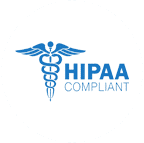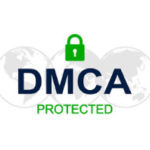Dental billing fraud is a serious crime that affects both patients and practitioners. It involves illegal practices that result in false claims being submitted to insurance companies for procedures that were not performed. As a result, insurance companies may pay excessive amounts for non-existent procedures, while patients may be overcharged for services they did not receive. In this blog post, we will discuss the legal consequences of dental billing fraud, including the civil and criminal penalties resulting from such actions.
Overview of Dental Billing Fraud
Dental billing fraud can take many forms. These may include misrepresenting services rendered, upcoding unbundling, and billing for services that were not medically necessary. Dental office personnel can be involved in dental billing fraud, including dentists, hygienists, and billing staff.
In the United States, dental billing fraud is a violation of both state and federal laws. The False Claims Act (FCA) is the primary federal law that addresses fraud against the government. The FCA generally prohibits individuals from knowingly submitting false or fraudulent claims for payment to a government program or agency. This includes claims submitted to Medicare, Medicaid, and other federal health insurance programs. In addition to the FCA, state laws may also address dental billing fraud, and dentists and other dental professionals may be subject to disciplinary actions by their licensing boards.
Understanding How Common Errors Can Lead to Dental Billing Fraud
These are the top illegal dental billing mistakes that dental practitioners should avoid to avoid penalties and even criminal charges.
Double Billing: Submitting claims for the same service or procedure more than once violates the False Claims Act and can lead to significant fines and penalties.
Billing for Services Not Rendered: Billing for services and procedures not provided is illegal and can lead to severe consequences for the dentist and their practice.
Upcoding: Charging more than the standard fee for a procedure is fraudulent and illegal, which can result in fines, license revocation, and criminal charges.
Unbundling: Submitting separate claims for services and procedures that should be billed as a single service is a serious violation of ethical and legal standards.
Waiving Co-payments/Deductibles: Encouraging patients to purchase services they may not need by waiving co-payments and deductibles undermine the insurance system and can result in severe penalties.
Altering Claim Forms: Altered claim forms can lead to inaccurate claims processing and insurance companies refusing to pay for services, resulting in costly penalties for dental practices.
By avoiding these illegal dental billing mistakes, dental practitioners can ensure more ethical practices and avoid the consequences of fraudulent behavior.
Civil Penalties for Dental Billing Fraud
Dental billing fraud can result in civil penalties, including fines and repayment of any overpayments received. The FCA allows for penalties of up to three times the damages the government suffered, plus additional fines of up to $11,000 per false claim. Some states may also impose civil penalties for dental billing fraud.
In addition to civil penalties, individuals who commit dental billing fraud may be excluded from participating in federal healthcare programs, including Medicare and Medicaid. Exclusion from these programs can have serious consequences, including loss of income and damage to professional reputation.
Criminal Penalties for Dental Billing Fraud
Dental billing fraud can also result in criminal penalties. Under the FCA, individuals who knowingly submit false or fraudulent claims to the government may face a criminal conviction and imprisonment for up to five years. In addition, convictions for healthcare fraud can result in fines of up to $250,000 for individuals and up to $500,000 for organizations. Convicted individuals may also be ordered to pay restitution to the defrauded parties.
State laws may also impose criminal penalties for dental billing fraud. Individuals convicted of these crimes may face imprisonment, fines, and loss of professional licenses. Dental professionals convicted of fraudulent activities may have difficulty obtaining employment in the industry and may be unable to regain their professional licenses.
Proactive Measures in Dental Billing Fraud Prevention
Dental billing fraud can be prevented through proper training and compliance programs. Dentists and other dental professionals should ensure that all employees know the laws and regulations governing dental billing practices. Here are the following steps to protect your practice from dental billing fraud.
Prioritize Clear Payment Arrangements
- Ensure patients understand coverage, fees, and financial obligations before services are provided.
- Discontinue relationships with patients who do not make reasonable payment efforts.
Establish and Implement a Fraud Policy
- Create a written policy with examples of fraud.
- Ensure all staff have read and signed the policy.
Divide Payment Processing Tasks Among Staff.
- Assign different tasks to multiple staff members.
- One person accepts payments, and another makes adjustments to patient records.
Regularly Review Claims
- As a dentist or practice owner, you must ensure claims are accurate.
- Review claims submitted by the practice regularly.
Monthly Fraud Prevention Actions
- Mail monthly reminders to patients of balances and minimums due.
- Forward large uncollectible balances to a professional collections agency.
- Regularly review collection and production reports to ensure accuracy.
- Check monthly profit and loss records to identify changes and investigate discrepancies.
Protecting your dental practice from fraud requires a proactive approach. Clear payment arrangements, policy implementation, division of tasks among staff, and regular claims review are steps that can help prevent fraud. By taking these actions, dental practices can help mitigate the risk of fraud and protect their business and patients.
Conclusion
Dental billing fraud is a severe crime that can result in civil and criminal penalties. Dentists, hygienists, and billing staff who engage in fraudulent billing practices can face fines, repayment of overpayments received, imprisonment, and loss of professional licenses. One effective solution is leveraging reliable dental billing software to streamline the billing process, ensure accuracy, and promote compliance with relevant regulations and laws. Investing in dental billing software can protect your practice from mistakes and improve billing efficiency, patient satisfaction, and overall business success











